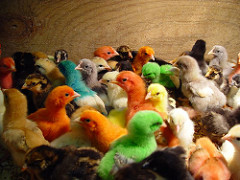 I’ve attended several workshops about diversity lately – particularly about diversity in publishing and fandom.
I’ve attended several workshops about diversity lately – particularly about diversity in publishing and fandom.
There’s only one thing I can still quote directly from any of them. The topic at the moment was how to address someone (e.g. "Black" or "African-American", "disabled" or "handicapped" or "handicapable" or "differently abled"). An audience member said:
"It’s like learning to speak a whole different language!"
That’s perhaps the most insightful single sentence about respect that I’ve heard in a long time.1
When you learn another language – really learn it, as opposed to learning enough to pass a test – it can change the way you think about the world. When we talk about how people want to be called, it’s about respect.
Here’s a trivial, unimportant example. I answer to both "Steve" and "Steven" – but it’s very, very common for me to be asked which I prefer. I suspect that every person named Steven (or Steve) has been asked the same thing.
It’s a small difference, and I’m hard pressed to think of someone who would get upset about that difference.
But you sure as hell don’t hear anyone complaining about not knowing whether or not it’s "correct" to say "Steve" or "Steven", or expecting any one of the people with that name to decide it for the rest of us.
It is learning a different language.
It’s learning how to respect others.
You can find Alliteration Ink’s respect policies at
1 Nevermind that the person saying it was complaining.
